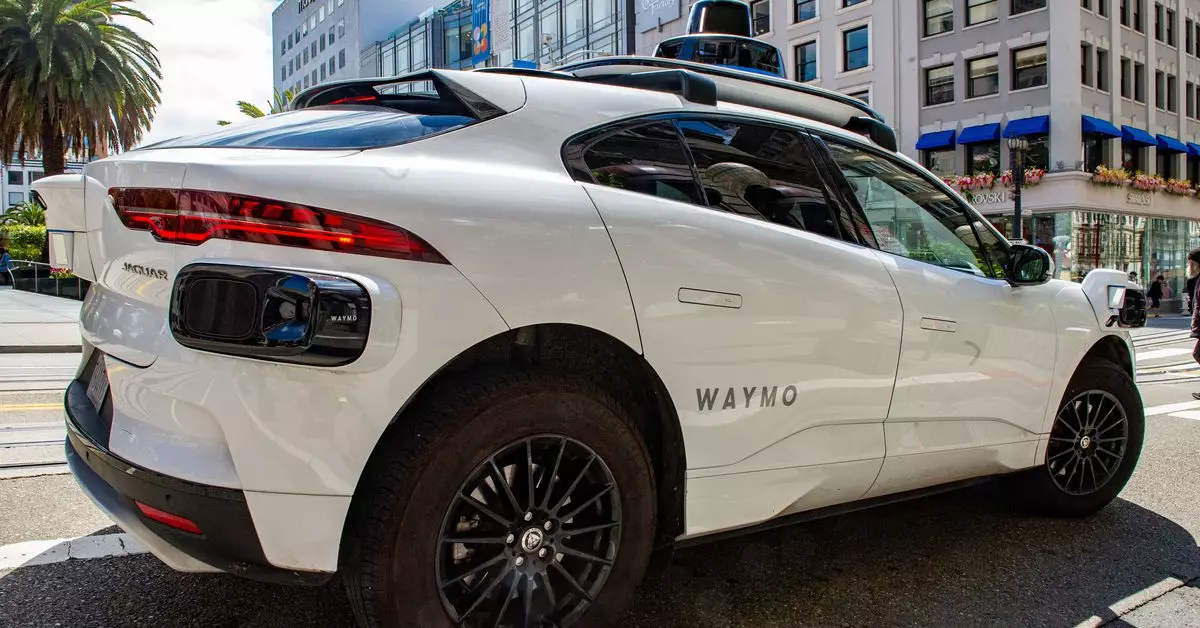Waymo, a leader in autonomous vehicle technology under the umbrella of Alphabet Inc., has announced a landmark venture: the deployment of its self-driving cars on the bustling streets of Tokyo, Japan. This initiative marks the company’s first foray into international territory, signifying a pivotal step in its mission to expand beyond the United States. As Waymo prepares to navigate a foreign driving environment characterized by unique regulatory frameworks and cultural nuances, it sets the stage for potential robotaxi services in one of the world’s most densely populated cities.
The initial phase of Waymo’s Tokyo initiative is framed as a “road trip,” aimed at amassing crucial data about Japanese driving conditions. With its fleet of about 25 vehicles—set to make their debut in early 2025—Waymo intends to learn how to adapt its technology to Japan’s left-hand traffic and intricate urban landscapes. This approach underscores a broader trend in the autonomous vehicle sector: the recognition that success in new markets hinges not only on innovative technology but also on an understanding of local driving behaviors and regulations.
Local taxi operator Nihon Kotsu will oversee the operation of Waymo’s vehicles, which will initially be driven manually for data collection purposes. The integration of a local partner highlights an essential strategy for Waymo: collaborating with established mobility providers to enhance the acceptance of its autonomous technology within existing transportation infrastructures. This modus operandi echoes Waymo’s current partnerships in the United States, notably its collaboration with Uber to offer rides in its autonomous vehicles.
While Waymo’s undertakings in Tokyo may initially not include direct passenger services, the groundwork laid during these tests could facilitate a future robotaxi offering. Waymo spokesperson Sandy Karp acknowledged that although the company is excited about the potential of introducing its “life-saving benefits” to Tokyo, there are no immediate plans to launch a rider service. Instead, the focus remains on understanding the local transportation dynamics and fostering relationships with municipal authorities and communities.
The relationship with GO, a popular Japanese taxi app, suggests that Waymo is considering a more integrated transport solution, akin to its operations in the U.S. This strategic partnership could give Waymo a foothold in Japan’s competitive mobility market, which has seen various players trial their autonomous technologies. However, the domestic auto industry’s preference to test in regions outside of Japan may present hurdles for Waymo, indicating an evolving battle for dominance in the autonomous vehicle space.
Waymo’s domestic operations reflect a gradual but steady growth trajectory. Currently, around 700 vehicles are deployed across multiple cities, including major urban centers like San Francisco and Los Angeles. Recently, Alphabet CEO Sundar Pichai revealed that Waymo is facilitating approximately 175,000 paid rides per week, showcasing the promising beginnings of its robotaxi business. Despite these advancements, the company has yet to establish a rapid deployment akin to its competitors, indicating the cautious nature of the autonomous vehicle rollout.
Challenges abound, particularly reflected in the increasing skepticism about the viability of costly robotaxi projects. Automaker General Motors recently announced a strategic pivot away from its Cruise division, opting instead to channel resources toward driver-assist technologies and personal autonomous vehicles. This trend of reevaluation emphasizes the risks and uncertainties inherent in the pursuit of widespread autonomous technology.
Waymo’s entrance into Tokyo comes at a critical juncture, as many companies grapple with the burgeoning demand for autonomous technology amidst financial constraints. By taking such a bold step towards international expansion, Waymo aims to project confidence in its capabilities. The geofencing of its vehicles to specific districts—such as Minato and Shinjuku—facilitates focused data gathering while easing concerns about safety and regulatory compliance.
Waymo’s Tokyo initiative serves not just as an exploration of a new market but as a testament to the potential of autonomous driving technology. By collecting essential data and building relationships with local partners, Waymo aims to position itself effectively within Japan’s unique transportation ecosystem, navigating challenges while remaining anchored in innovation and local collaboration. The coming years will be critical as Waymo evaluates its learnings and charts its path toward realizing a comprehensive autonomous mobility solution in one of the globe’s most complex urban environments.

